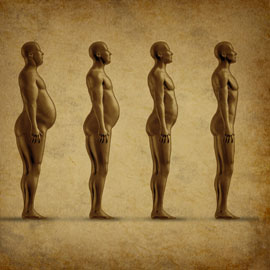Is obesity a disease?
It is hard for me to believe that with what we know about obesity in 2013, it is still not considered a disease by our health insurance industry, and medical weight loss remains an out-of-pocket expense for most obese individuals. For the past 10 years, I've enjoyed watching patients in Denver with obesity get medical weight loss treatment at CNC and dramatically improve their lives.
Should medical weight loss be a benefit covered by insurance companies?

A disease is defined as “any deviation from or interruption of the normal structure or function of any body part, organ, or system that is manifested by a characteristic set of symptoms and signs and whose etiology, pathology, and prognosis may be known or unknown”(thefreedictionary.com).
Clearly by this definition, obesity would qualify. Excess body fat interrupts normal functioning of the human body, has characteristic symptoms and signs (fatigue, pain, high cholesterol, large abdomen), and the etiology (genetics, environment), pathology (accumulation of adipocytes), and prognosis (causes cancer, heart disease, diabetes, shortens lifespan by 8 years, etc.) are all known.
So why is it that insurance carriers continue to deny individuals health insurance based on their weight AND to deny payment for medical weight loss? It seems to me that if they are saying “your weight negatively impacts your health – therefore we are not going to offer coverage” that it is hypocritical to then say “your weight negatively impacts your health – nonetheless, because obesity isn’t a disease, we are not going to cover medical weight loss treatment with weight loss medications, bariatric surgery, etc.”
I feel that this practice constitutes both a type of bias (weight bias) and discrimination (imagine if an insurance company said they wouldn’t cover an individual because of skin color) and that this should not be tolerated or allowed.
We now have an emerging specialty of obesity medicine which has been setup from the get-go to study the medical disease of obesity – it’s causes, best medical weight loss treatments, and prevention strategies. We have two new FDA approved prescription weight loss medications (Belviq, Qsymia) both approved for the long-term medical weight loss. We have 3 commonly used types of surgical treatments providing various amounts of weight loss with varying degrees of risk and success. And, many more medical weight loss treatments are in development.
If obesity is not a disease, why train doctors in obesity? Where is the incentive to develop new weight loss treatments? Why do we need two weight loss medications to treat a non-disease? Why would obese individuals consult with their physician for medical weight loss if obesity is a non-medical problem? If obesity is not a disease, then really this is a problem of just eating too much – by classifying obesity as a non-disease, we are reinforcing weight bias, weight discrimination, and reinforcing the message to individuals that weight is a problem of personal responsibility.
So, where does that leave me? As a delegate to the American Medical Association (AMA) representing the American Society of Bariatric (weight loss) Physicians, I am in a position to try and impact this. The AMA is a powerful organization, maybe even powerful enough to lobby for inclusion of obesity in the list of covered diseases by our insurance companies in the new emerging healthcare system. In fact, there are 2 different resolutions asking for obesity to be considered a disease being debated in front of the AMA at their annual meeting this month in Chicago.
I intend to represent the field of obesity medicine doctors and patients in front of the AMA and advocate the scientific merits of why obesity is in fact a disease, and that there would be widespread benefits to recognizing it as such. I intend to start breaking down the walls of weight bias and discrimination and change this long-standing omission.
Wish me luck!





It’s about time!! GOOD LUCK and THANK YOU!